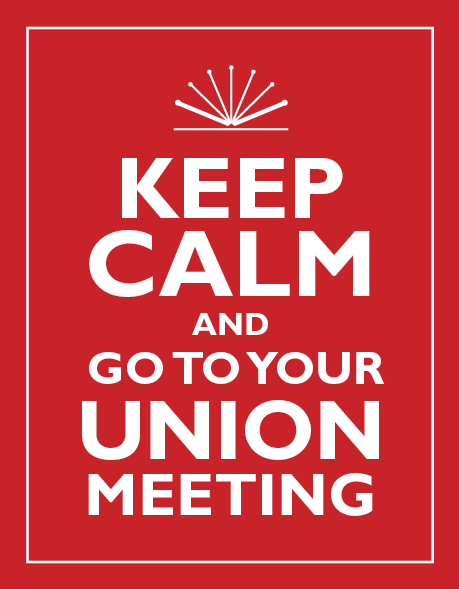Keeping Your Contract Strong
Protect Your Right to Collective Bargaining

Once your local has ratified a new contract through the collective bargaining process, it’s up to you — and the members of your union — to protect and enforce it. There’s no value in a contract that is not vigilantly held to scrutiny at every suspected violation.
Collective bargaining is a serious legal undertaking and the outcome is codified in your contract — that means that when your employer violates it, it becomes a matter that is dealt with through the formal grievance process.
Your negotiations team bargains your contract based on the feedback the team receives from members during the preliminary stages of contract negotiations with your school board. Your team argues for the rights, benefits, and compensation you want. The union is powerful because of that united position; resolving a grievance about a perceived contract violation is how unions protect your contract.
YOU are responsible for enforcing your contract — that’s how you protect your rights. You must know your contract so that you can recognize and report concerns and violations. When violations go uncontested, it undermines the value of your contract and weakens your ability — now and in the future — to enforce it.
Employers, anti-union proponents, and some lawmakers will seize on any perception of weakness by your association.
Understanding your contract and the power of collective bargaining means you are ready and able to protect your profession, schools, and students.
10 Ways You Can Help Protect Your Contract and Your Rights
1. When you see something that should be changed/improved, take it to your local association for consideration in the next round of negotiations.
Example: Members in St. Mary’s County were forced to pump breast milk in an unacceptable back room. They took the issue to the bargaining table and now schools must provide new educator-mothers a safe, clean space.
2. If you see a loophole in your contract, take it to your negotiations team or UniServ representative. It can become an issue in the next round of bargaining.
3. Stay plugged in. When contract language is infringed upon organized action may be needed — that’s when the power of your union makes the difference.
4. Share information — it’s VITAL to protecting your rights. Participate by attending your school’s union meetings, becoming a building rep, and following your local and MSEA on social media. Share what you learn.
5. Report to your building rep when you see or hear something wrong in your school or worksite. Vigilance pays.
6. Use your voice — complete your local pre-bargaining survey.
7. Participate in ratifying your contract. Vote.
8. Build relationships with your county and state lawmakers and hold them accountable.
9. Sign up to receive MSEA’s Up the Street, a short debrief of what’s happening in Annapolis. Learn what legislation is putting unions at risk and be in the know about policies that affect your job and your students. You’ll know when to respond.
10. Find out how to support your union. Contact your local association to see what’s happening now and what’s on the radar for the new school year.

